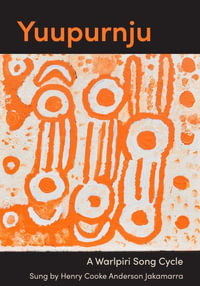Resounding Transcendence is a pathbreaking set of ethnographic and historical essays by leading scholars exploring the ways sacred music effects cultural, political, and religious transitions in the contemporary world. With chapters covering Christian, Muslim, Jewish, and Buddhist practices in East and Southeast Asia, the Indian subcontinent, North America, the Caribbean, North Africa, and Europe, the volume establishes the theoretical and methodological foundations for music scholarship to engage in current debates about modern religion and secular epistemologies. It also transforms those debates through sophisticated, nuanced treatments of sound and music - ubiquitous elements of ritual and religion often glossed over in other disciplines.
Resounding Transcendence confronts the relationship of sound, divinity, and religious practice in diverse post-secular contexts. By examining the immanence of transcendence in specific social and historical contexts and rethinking the reified nature of "religion" and "world religions," these authors examine the dynamics of difference and transition within and between sacred musical practices. The work in this volume transitions between traditional spaces of sacred musical practice and emerging public spaces for popular religious performance; between the transformative experience of ritual and the sacred musical affordances of media technologies; between the charisma of individual performers and the power of the marketplace; and between the making of authenticity and hybridity in religious repertoires and practices. Broad in scope, rich in ethnographic and historical detail, and theoretically ambitious, Resounding Transcendence is an essential contribution to the study of music and
religion.
Industry Reviews
"Centered around the concepts of transitions and transcendence in human experience, the essays Engelhardt and Bohlman have gathered are eclectic. In their introduction, the editors suggest that the current conception of music and religion is shaped by the legacy of colonialism. Transcendence, they argue, acknowledges the symbolic character of music. Covering developments in religious and musical traditions in various parts of the world--South and Southeast
Asia, Taiwan, Tunisia, Trinidad, the US, and Europe--the volume covers music both performed and received. Religious traditions examined include Islam, Buddhism, Christianity, and Judaism. The contributors
approach their topics from their subjects' lived experience--understanding gathered both from fieldwork and from study of the literature--examining all under the overarching theme of transcendence. Students of comparative religion, ethnomusicology, and postcolonial studies will find much to ponder in this collection"--Choice
"This wide-ranging and significant collection welcomes within its pages a diversity of material that both opens up new interdisciplinary perspectives and, at moments, skirts on the edges of coherence. Oxford University Press describes the volume as 'theoretically ambitious', and the introduction by the two co-editors certainly lives up to this depiction. Indeed, such a wide range of themes is included within this introductory section that it can take a little
time to figure out which of these truly guide the collection as a whole. Within the space of twenty-five pages, the editors cover such themes as sacred metaphysics, sounding and resonance, histories and
processes of transcendence, immanence and secularity, voice, ritual transition, postcolonialism, postsecularity, conversion, healing, soteriology, indigenization, inculturation, and globalization, among others"--Music and Letters

























